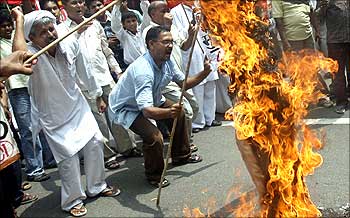
The World Trade Organisation ministerial meeting broke the 'impasse' over resumption of Doha Round of talks, with 35 trade ministers agreeing to take forward negotiations from where they left in Geneva in July last year.
The chief negotiators and senior officials will resume the talks in Geneva from September 14.
"We have reached an agreement to intensify negotiations. It has been a breakthrough in this meeting. If I can use this expression 'impasse' in resuming the negotiations has been broken," Commerce and Industry Minister Anand Sharma said after closure of the two-day informal meeting in New Delhi.
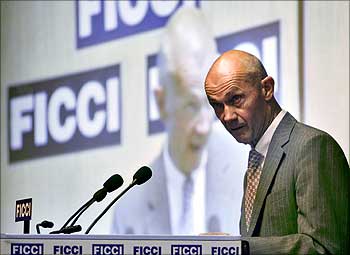
WTO Director General Pascal Lamy also attended the meet.
"There was a unanimous affirmation on the need to conclude the Doha Round within 2010," the Chair's summary said.
Meanwhile, over 10,000 Indian farmers protested against efforts to liberalise agricultural trade. The farmers, who are reeling under the impact of a debilitating drought, are afraid that further liberalisation of farm trade will hurt their livelihood.
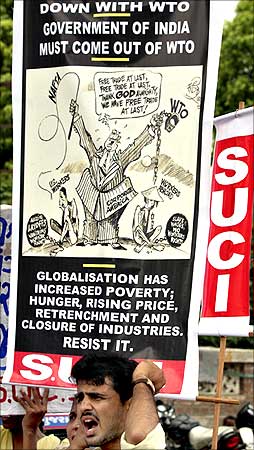
However, those in favour of opening up the agriculture sector advocate that lifting of trade barriers would provide a boost during tough economic times and help combat protectionism indulged in by some nations.
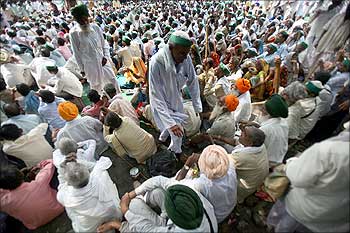
However, it admitted that differences persist on the substantive negotiating issues.
These include the level of market access for industrial goods sought by the developed world, developing nations' plea for cutting and eliminating heavy subsidies on farm products in the United States and Europe and the livelihood concerns of the poor farmers.
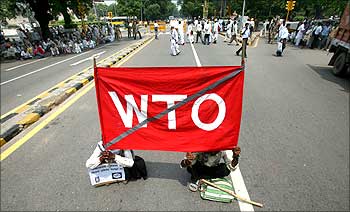
Negotiations had ended in a deadlock in July last year as consensus over contentious agriculture protection to be given to farmers in developing countries eluded.
While key WTO members agreed to remain engaged in negotiating a global trade agreement, countries, both from developed and developing world, did not hesitate from tough posturing.
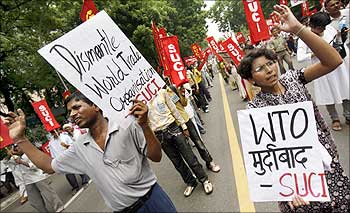
Given the recognition that 60 per cent of the world economic growth is going to come from emerging economies like India, Brazil, China, South Africa and the ASEAN region, the US asked these nations to take up more responsibilities and give market access to the products of the industrialised world.
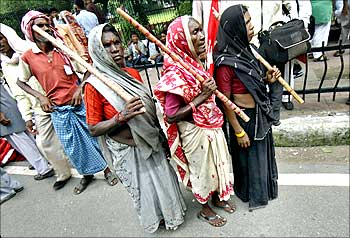
"Those countries that can make contributions to the world including the advanced emerging economies India, Brazil, China have added responsibility to make tough decisions in order to make Doha successful. . ," US Trade Representative Ron Kirk said in his press briefing.
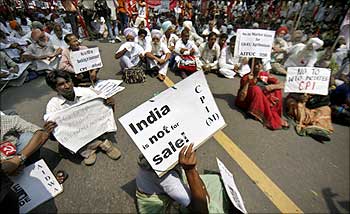
However, Brazil the coordinator of the G 20 alliance, said the developing countries have already made enough concessions and new demands should not be made on them.
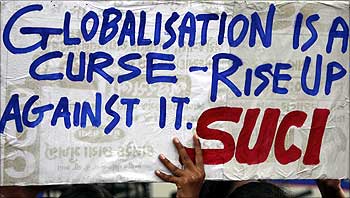
Brazilian External Affairs Minister Celso Amorim said the rich countries 'pay lip service' to the development dimension of the Doha Agenda but brought nothing substantive on the table.
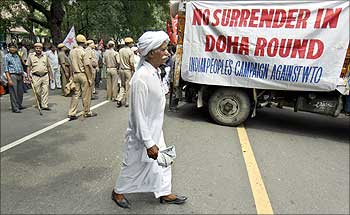
"They pay lip service but make extra demand," Amorim said citing the example of insistence on having zero duties on specific sectors like automobile, textile and chemicals.
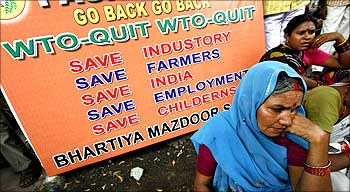
Sharma said the Delhi meeting has established India's "leadership" role in the multilateral talks.
The Doha round of talks had failed in July 2008 and the current New Delhi talks among trade ministers from some 36 countries were designed to restart the Doha round. The efforts seem to have been successful.